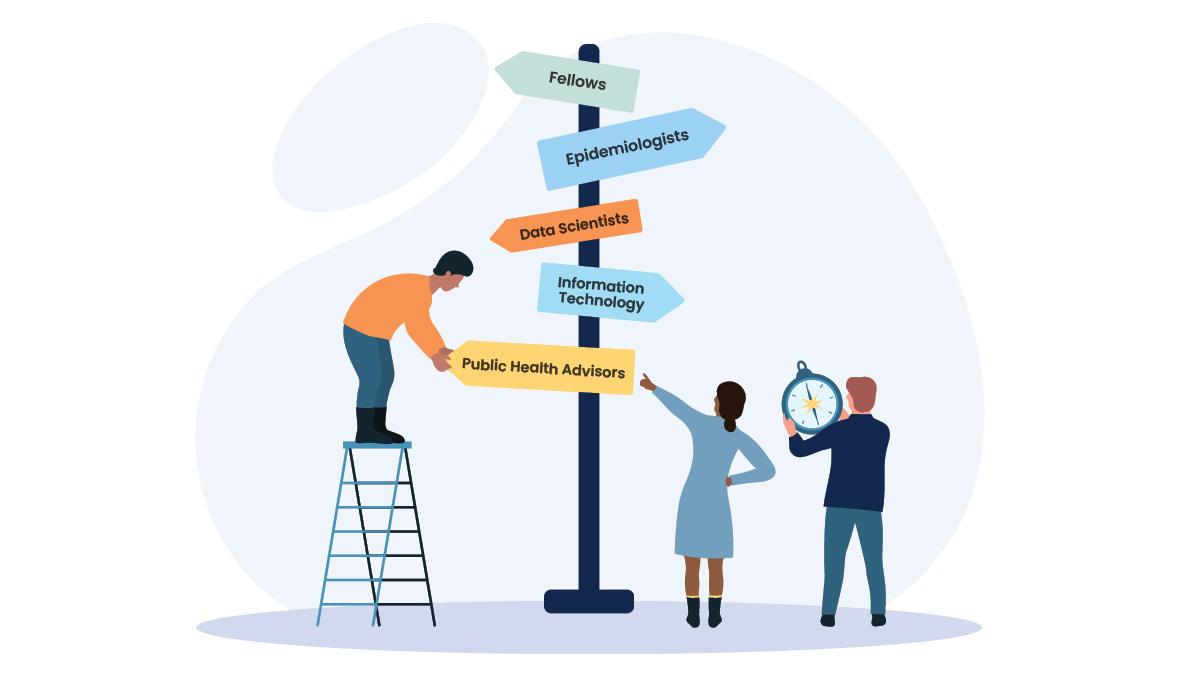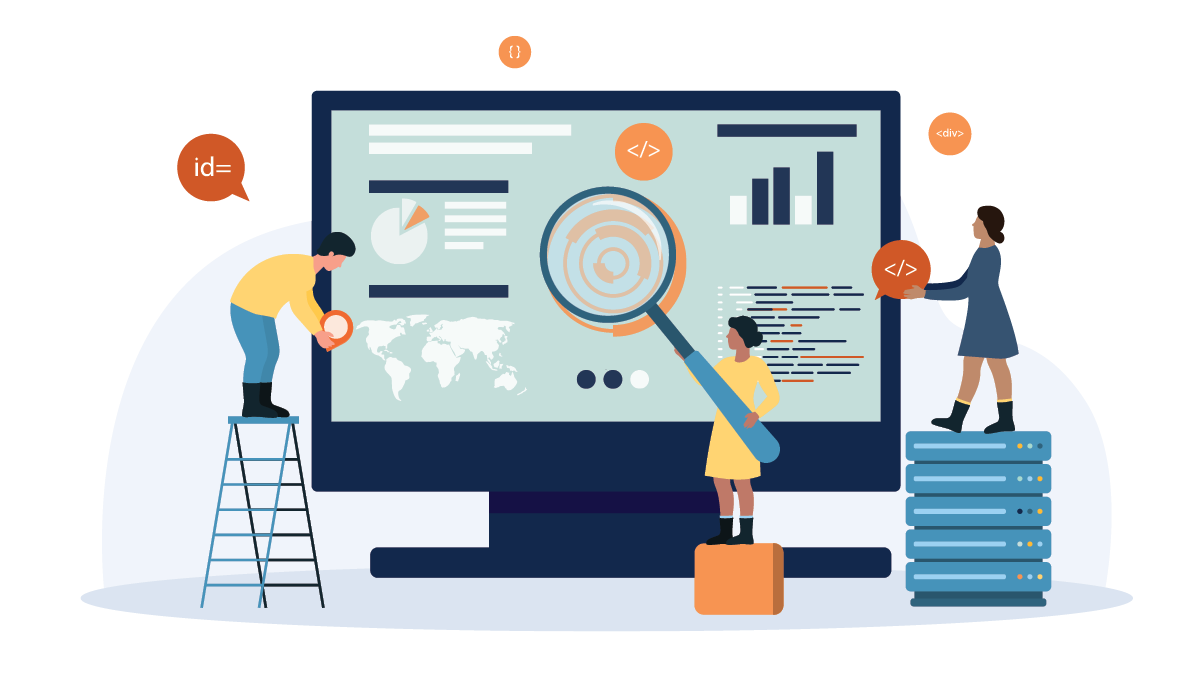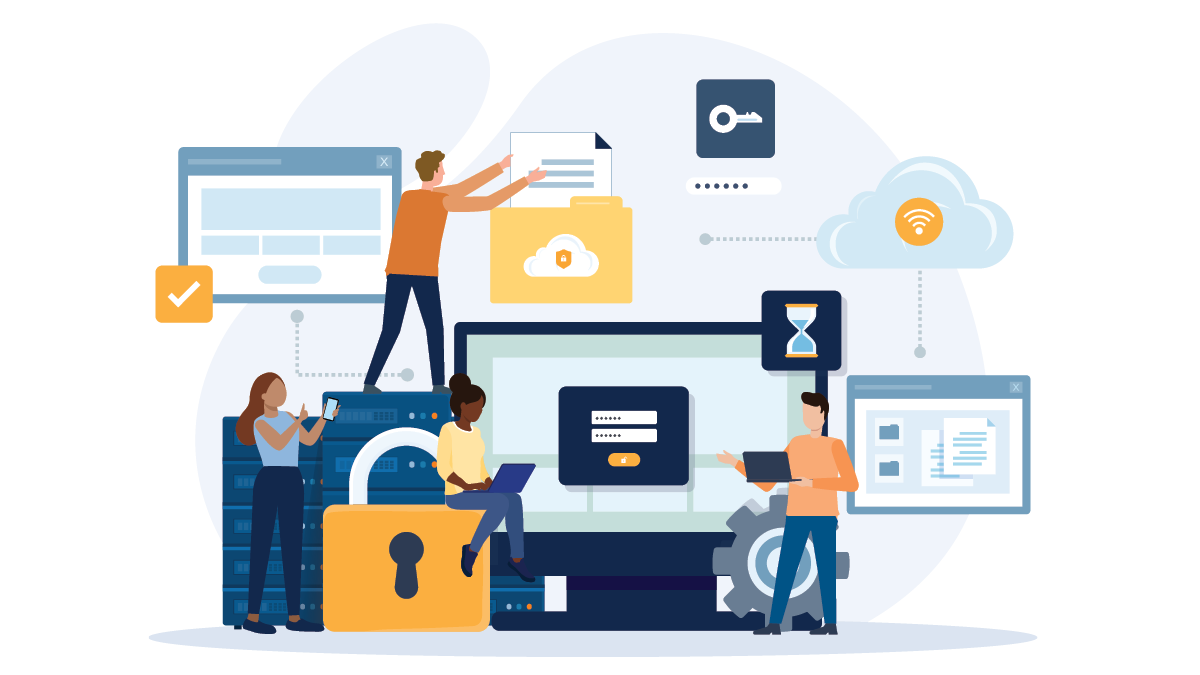At a glance
- Discover different career pathways at CDC's Center for Forecasting and Outbreak Analytics (CFA).
- Learn about the day-to-day work environment at CFA.

Data scientists

What does a data scientist do at CFA?
Data scientists at CFA gain experience by applying best practices in software engineering. Our staff work to implement well-tested, scalable tools used at the Centers for Disease Control and Prevention, and by external partners in academia and government.
As data scientists at CFA, we work on a team to help build, test, and improve computational tools to analyze disease outbreak data in real time. You'll work with your team to produce analyses, reports, and deliverables to support public health decision-makers.
You'll also find solutions for scientific challenges to identify what information, modeling, and inference methods produce the best insights.
What kind of education and experience is required to be a data scientist at CFA?
CFA data scientists should have a minimum of a bachelor's degree in:
- Math
- Physics
- Engineering
- Computer science
- Quantitative epidemiology
- Disease Ecology
- Other related fields
New CFA scientists should be excited to learn new modeling methods and inference strategies.
Many CFA data scientists have graduate-level (MS or Ph.D.-level) training in infectious disease dynamics or related disciplines.
Sometimes, our data scientists use more traditional machine learning or time series methods. CFA uses approaches that explicitly model biological, behavioral, and operational aspects of disease transmission and case observation. We use a variety of inference strategies (mostly Bayesian) to fit these models to data.
Experience with these methods or a strong desire to learn is a plus.
Fellows

What does a Fellow do at CFA?
The day-to-day responsibilities for a Fellow at CFA vary. One day, you'll develop an Rt estimate for an infectious disease model and the next, you may communicate your findings to CDC leadership. No matter what project you are working on, our Fellows make a difference every day.
Fellows at CFA have the unique opportunity to participate in projects.
We work to match your interests and relevant skills to corresponding projects and programs for the Center. From data science, policy, and communications to other partnership activities, CFA offers a variety of opportunities.
What kind of education and experience is required to be a Fellow at CFA?
Education requirements vary by Fellowship, responsibilities, and placement location in CFA. Generally, employees should have at least a bachelor’s degree. Preferably, they'll hold a graduate degree with a focus in health science, computer science, public health, or another relevant field.
Information technology

What does an IT professional do at CFA?
Computer scientists, mathematicians, statisticians, engineers, and STEM-minded individuals work to support the mission of CFA.
Our IT staff develop and deploy digital tools, infrastructure, and software to support public health and disease outbreak response. You'll collaborate with decision-makers within CDC, the federal government, and state, local, and tribal leaders.
What kind of education and experience is required to be an IT professional at CFA?
IT professionals at CFA should have a minimum of a bachelor's degree in computer science, engineering, mathematics, or relevant STEM subjects.
Experience with data manipulation, software development lifecycle, SQL, Java, Python, HTML, and C++ are required.
